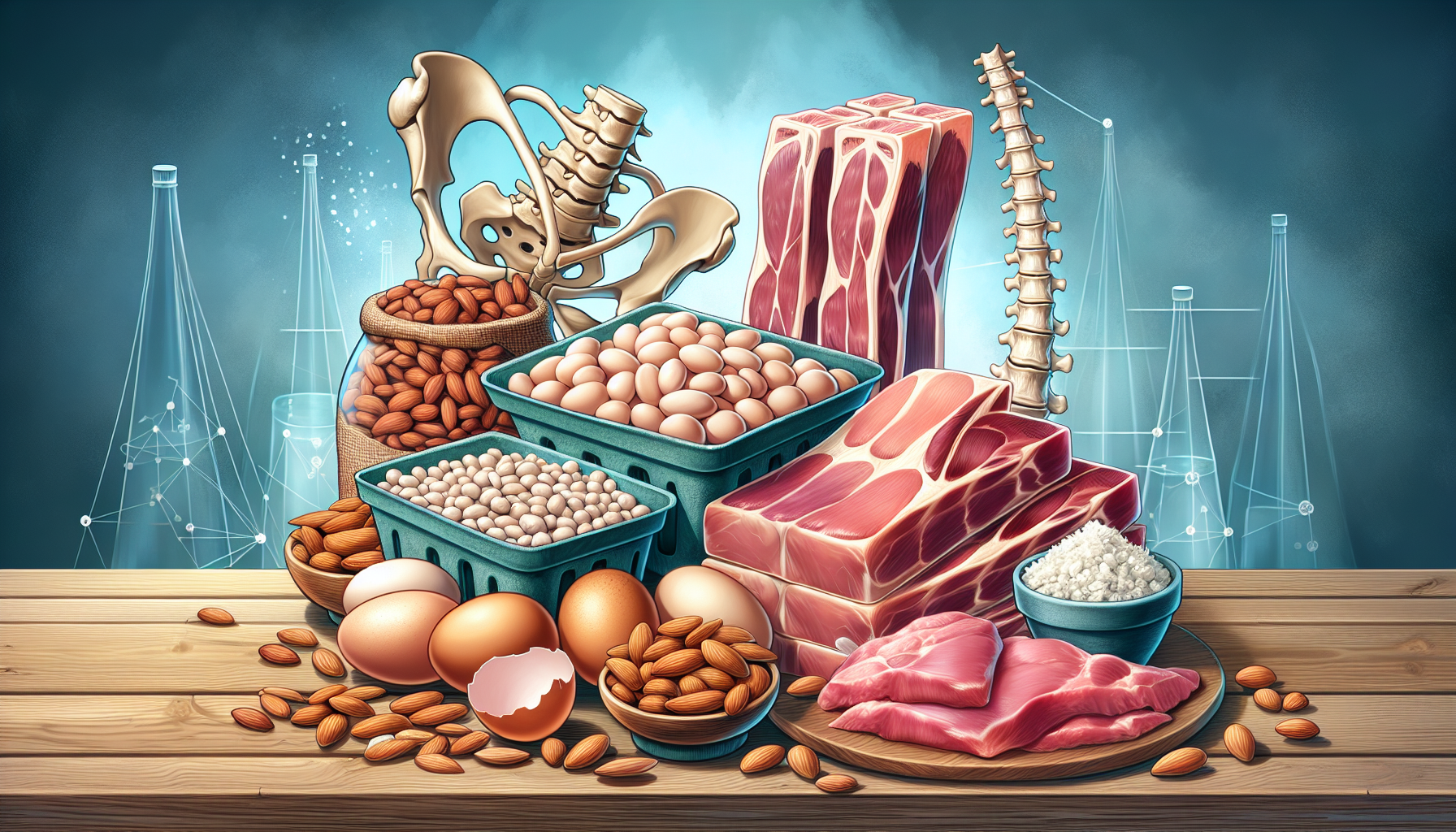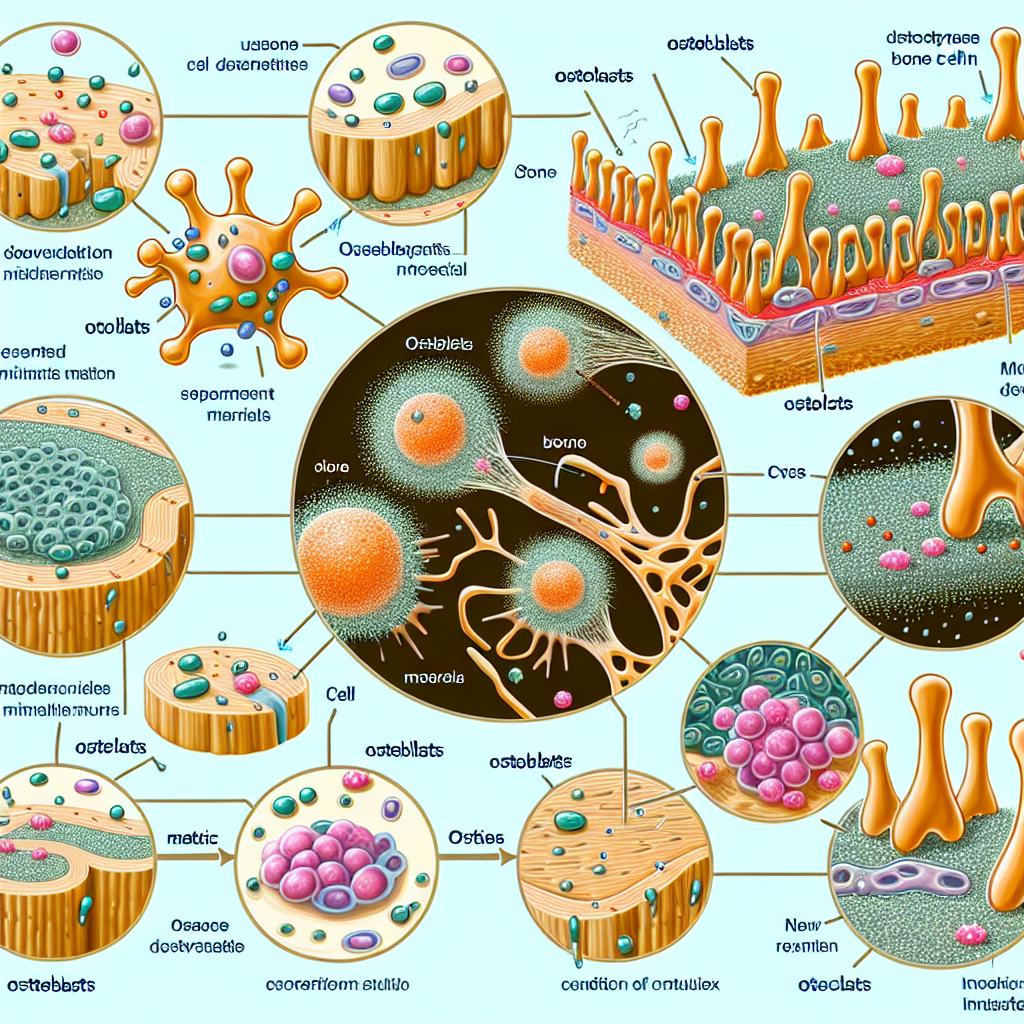Protein is a crucial macronutrient that plays various critical roles in bodily functions, including the growth and repair of tissues. When it comes to bone health, protein’s impact has been the subject of extensive research and discussion. Bones are not inert structures; they are dynamic, living tissues that require a balanced diet, including adequate protein intake, to maintain their strength and density. In this comprehensive article, we dive into the nuances of how dietary protein influences bone health, the interplay between protein and other nutrients, and practical recommendations for optimizing bone health through diet.
The Role of Protein in Bone Health
Bones are primarily composed of a matrix that includes collagen, a protein that provides a framework for the deposition of minerals such as calcium and phosphorus, which harden and strengthen the bone structure. Dietary protein contributes to the pool of amino acids necessary for the synthesis of collagen and other bone matrix proteins, underscoring its importance in the maintenance of bone health.
However, the relationship between protein intake and bone health is not straightforward. High protein diets have been thought to increase the excretion of calcium in urine, sparking concerns that excessive protein consumption could be detrimental to bone health. Conversely, a diet too low in protein is also harmful, as it can lead to reduced calcium absorption and decreased bone formation.
Protein’s Positive Effects on Bone Density
Studies have shown that adequate protein intake is linked with increased bone mass and reduced risk of fractures, particularly in the elderly. Protein enhances the production of the growth factor IGF-1, which stimulates osteoblasts—the cells responsible for bone formation. Moreover, it can improve muscle mass and strength, which is essential in protecting bones from injury.
For a deeper understanding of the relationship between bone health and muscle mass, one may consider exploring Bone Health and Immune System Interactions, which delves into the complex interplay between the skeletal and immune systems.
The Importance of Protein Source
The source of dietary protein—whether animal or plant-based—can also have different effects on bone health. Some studies suggest that plant-based proteins, which often contain phytates, can inhibit calcium absorption. However, these proteins typically come with an array of other nutrients beneficial for bone health, such as magnesium and vitamin K.
Conversely, animal proteins provide readily available calcium and vitamin D but may contain higher levels of sulfur amino acids, which can lead to higher acidity and potential calcium loss if not balanced with sufficient intake of fruits and vegetables.
Balancing Protein with Other Nutrients
The body’s ability to utilize protein for bone health is influenced by the presence of other nutrients. Calcium and vitamin D are particularly important, as they work synergistically with protein to support bone density and strength.
For instance, vitamin D enhances the absorption of calcium from the gut, while calcium is essential for proper bone mineralization. Without adequate levels of these nutrients, even high protein intake may not translate to improved bone health.
To fully understand the synergy between these nutrients, it’s advisable to read about The Role of Chondroitin and Glucosamine in Bone Health, which highlights the importance of various compounds in maintaining bone integrity.
The Alkaline Diet Hypothesis
The alkaline diet hypothesis posits that consuming foods that increase the body’s pH can prevent bone loss. While this theory is still under scrutiny, it suggests that balancing protein-rich foods with alkaline options like fruits and vegetables could benefit bone health.
Protein Intake Recommendations
Current recommendations suggest that adults should consume 0.8 grams of protein per kilogram of body weight per day. However, some experts argue that this may be insufficient for preventing bone loss, particularly in older adults. The optimal amount of protein for bone health is still being debated, and individual needs can vary based on age, sex, physical activity level, and overall health.
Practical Dietary Considerations
To promote bone health, it’s essential to not only focus on protein intake but to also ensure a balanced diet rich in calcium, vitamin D, magnesium, and other bone-friendly nutrients. Incorporating a variety of protein sources, including both animal and plant-based proteins, can provide a broad spectrum of amino acids and nutrients.
Emphasizing foods like dairy products, leafy greens, nuts, seeds, fish, and legumes can help achieve a well-rounded diet that supports bone health. Additionally, engaging in regular weight-bearing and muscle-strengthening exercises can enhance the benefits of a protein-rich diet.
Understanding the effects of menopause on bone mass is also crucial, especially for women. The article Understanding the Effects of Menopause on Bone Mass offers valuable insights into navigating this life stage while maintaining strong bones.
External Resources for Further Reading
For those looking to delve deeper into the science behind dietary protein and bone health, the following resources offer niche and specific information:
- The National Osteoporosis Foundation provides comprehensive guidelines on the prevention and management of osteoporosis, including dietary recommendations.
- The International Osteoporosis Foundation offers a global perspective on bone health, with resources on the latest research and strategies for maintaining strong bones throughout life.
- The Academy of Nutrition and Dietetics provides evidence-based nutritional advice and includes resources on how to optimize bone health through diet.
In summary, dietary protein is a vital component of a bone-healthy diet, but it should be consumed as part of a balanced nutritional plan that includes adequate amounts of calcium, vitamin D, and other essential nutrients. By understanding the complex role of protein in bone health and making informed dietary choices, individuals can support their skeletal health and reduce the risk of bone-related disorders.



